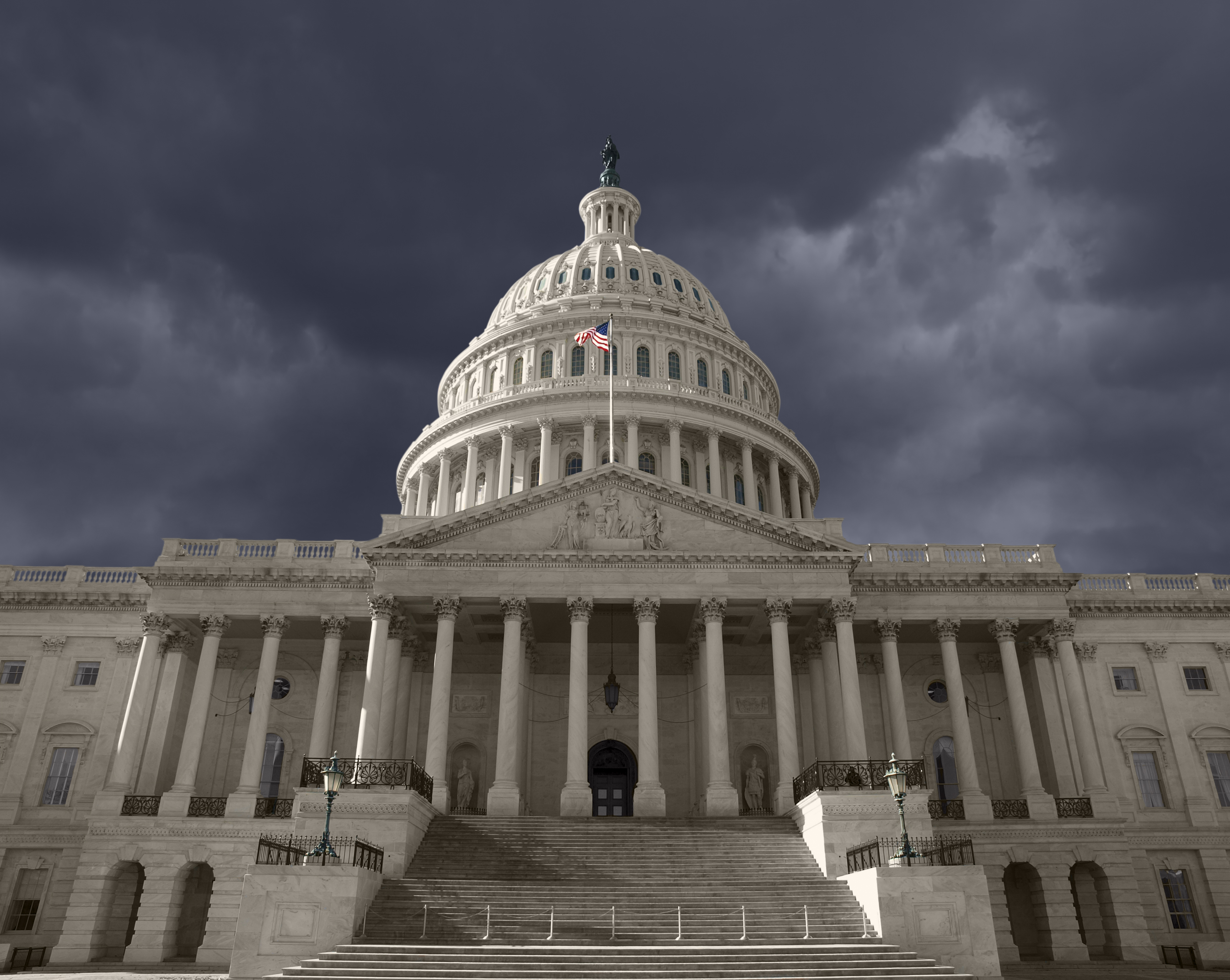Everybody hates Congress. So why do congressmen almost always get re-elected?
It's called Fenno's Paradox


A free daily email with the biggest news stories of the day – and the best features from TheWeek.com
You are now subscribed
Your newsletter sign-up was successful
Everybody hates Congress.
Well, okay, not everyone. But almost everyone. The Real Clear Politics polling average shows that a mere 14 percent of Americans approve of Congress, compared to 78 percent who disapprove. That's an almost impossible spread of more than 60 points. And yet, Congress' approval is actually slightly better today than it was in early 2013, when Public Policy Polling found that Congress was less popular than Genghis Khan, root canals, and cockroaches.
Congress is, by any measure, not popular. This probably has to do with the nature of the U.S. legislature itself, in which gridlock, animosity, and partisanship are part of the process. Passing laws is "aggressive, messy, contentious, and citizens do not like conflict in government," says Gisela Sin, a professor of political science at the University of Illinois, Urbana-Champaign.
The Week
Escape your echo chamber. Get the facts behind the news, plus analysis from multiple perspectives.

Sign up for The Week's Free Newsletters
From our morning news briefing to a weekly Good News Newsletter, get the best of The Week delivered directly to your inbox.
From our morning news briefing to a weekly Good News Newsletter, get the best of The Week delivered directly to your inbox.
It's curious, then, that while people hate the monolithic Congress, they seem to like their own Congressional representatives just fine.
In 2014, Congress had an approval rating in the neighborhood of 13 to 15 percent; nonetheless, 95 percent of incumbents were re-elected in the midterm elections. This is sometimes known as Fenno's Paradox, named after political scientist Richard Fenno, who first pointed out the disconnect between low Congressional approval and incumbency retention in 1978.
"Citizens use different criteria for judging the performance of their representatives and Congress as a whole," Sin said. Congress as a whole is rated on the messiness of the legislative process, and at least to some extent on the state of the economy or the country. Individual members of Congress, though, "are judged by constituency service and personal attributes," Sin said. As a result, members of Congress tend to be more focused on, and more responsive to, local constituents than to national ones.
In their efforts to please their constituents, congressmen have numerous advantages. They have staffs devoted to addressing constituents' problems, from lost checks to pushing funding for local projects. Congressmen also have many opportunities to meet constituents in person; they get invited to events and dinners and parties all the time. People may hate that thing called Congress way off in the distance, but they like that congresswoman they met at the local holiday parade.
A free daily email with the biggest news stories of the day – and the best features from TheWeek.com
Congressmen also have the advantage of local media coverage and name recognition. Once you're in office, what you do is automatically newsworthy. You're a public figure. Your constituents know who you are, and they see you in the news doing important Congressional things. People know your name, and associate you with national political office. Primary challengers, on the other hand, can struggle for airtime and media coverage.
In addition, incumbents in House races often benefit from the fact that many Congressional districts are dominated by one party. Republicans are stronger in rural and suburban areas; Democrats are stronger in urban ones. That means that if incumbents are going to be challenged, it has to be in the primaries — elections where voters don't pay much attention, and in which challengers have little opportunity to gain media attention. Barack Obama, arguably the most talented Democratic politician of his generation, challenged incumbent Bobby Rush for his House seat in the 2000 Democratic primary. Rush had just gotten thumped in a bid for mayor, in which he had run a notably ineffectual campaign, and pundits thought he might be vulnerable. He was not. Obama lost by 30 points.
Until recently, members of Congress also boosted their popularity back home with earmarks — legislative provisions that directed federal spending to particular districts or states. In exchange for earmarks that helped their constituents directly, senators and representatives had an incentive to reach compromise on national bills. Earmarks helped boost a congressman's profile at home, and also reduced gridlock, dampening one major cause of broader Congress-hate.
Of course, earmarks have been eliminated — a sign of greater polarization, and of the way in which parties are exerting greater control over, and greater discipline on, individual members. The Senate's unprecedented refusal to even give Supreme Court nominee Merrick Garland a hearing shows the advance of party discipline — as well as some of its dangers for individual members.
When individual congressmen are seen as representatives of their party first, elections can be nationalized, and incumbents can become vulnerable. Senate Judiciary Chair Chuck Grassley (R-Iowa), for example, is facing his first competitive race in decades, in no small part because of his refusal to even meet with Garland.
In the past, low Congressional approval has been mostly a curiosity; it hasn't had much correlation with electoral outcomes. But if the relationship between Congress and individual congressmen changes, the meaning, and predictive power, of Congressional approval could change as well. At the least, it seems like an ominous sign for incumbents that Obama's approval is going up while approval of the Republican Congress is going down. That starts to look like voters are angry, not at the system as a whole, but at one party in particular.
Noah Berlatsky is a freelance writer whose work appears in The New Republic, The Guardian, and other venues. He is the author of Wonder Woman: Bondage and Feminism from Rutgers University Press.
-
 Hong Kong jails democracy advocate Jimmy Lai
Hong Kong jails democracy advocate Jimmy LaiSpeed Read The former media tycoon was sentenced to 20 years in prison
-
 Japan’s Takaichi cements power with snap election win
Japan’s Takaichi cements power with snap election winSpeed Read President Donald Trump congratulated the conservative prime minister
-
 Seahawks trounce Patriots in Super Bowl LX
Seahawks trounce Patriots in Super Bowl LXSpeed Read The Seattle Seahawks won their second Super Bowl against the New England Patriots
-
 Will Peter Mandelson and Andrew testify to US Congress?
Will Peter Mandelson and Andrew testify to US Congress?Today's Big Question Could political pressure overcome legal obstacles and force either man to give evidence over their relationship with Jeffrey Epstein?
-
 Rep. Ilhan Omar attacked with unknown liquid
Rep. Ilhan Omar attacked with unknown liquidSpeed Read This ‘small agitator isn’t going to intimidate me from doing my work’
-
 Can anyone stop Donald Trump?
Can anyone stop Donald Trump?Today's Big Question US president ‘no longer cares what anybody thinks’ so how to counter his global strongman stance?
-
 The billionaires’ wealth tax: a catastrophe for California?
The billionaires’ wealth tax: a catastrophe for California?Talking Point Peter Thiel and Larry Page preparing to change state residency
-
 Bari Weiss’ ‘60 Minutes’ scandal is about more than one report
Bari Weiss’ ‘60 Minutes’ scandal is about more than one reportIN THE SPOTLIGHT By blocking an approved segment on a controversial prison holding US deportees in El Salvador, the editor-in-chief of CBS News has become the main story
-
 Will the new year bring a new shutdown?
Will the new year bring a new shutdown?Today’s Big Question A January deadline could bring the pain all over again
-
 Is Trump deliberately redacting Epstein files to shield himself?
Is Trump deliberately redacting Epstein files to shield himself?Today’s Big Question Removal of image from publicly released documents prompts accusations of political interference by justice department
-
 Could Trump run for a third term?
Could Trump run for a third term?The Explainer Constitutional amendment limits US presidents to two terms, but Trump diehards claim there is a loophole
